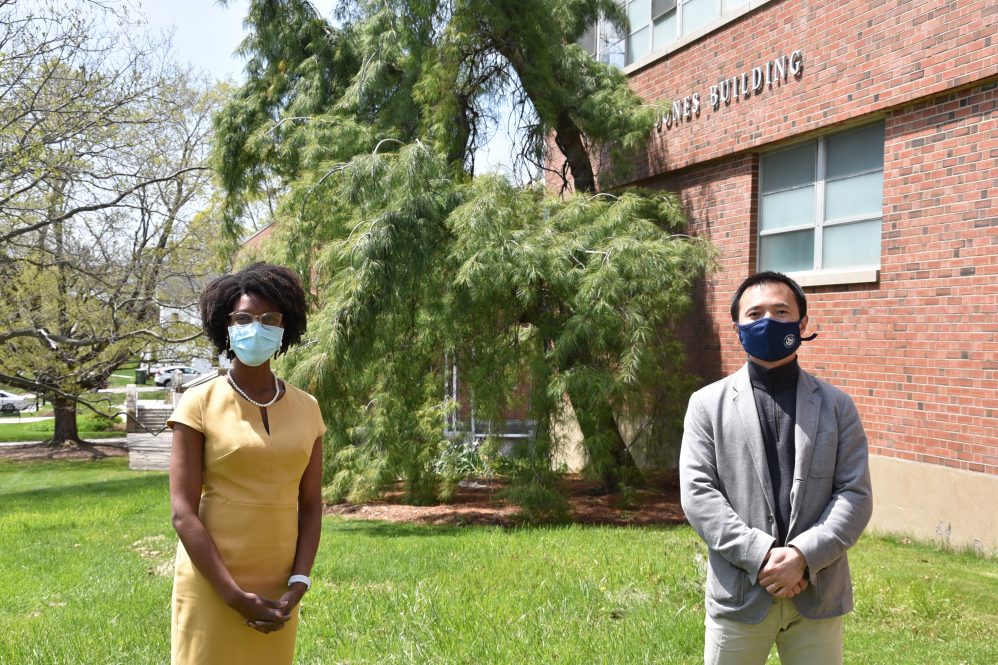Faculty from the Department of Nutritional Sciences Yangchao Luo and Loneke Blackman Carr have received a $500,000 grant from the United States Department of Agriculture to support the continuation of a program designed to give community college and UConn students practical research experience.
Bridging the Gap II: Summer Experiential Learning in Food and Nutrition will consist of a 10-week intensive summer course for underrepresented students from UConn and Gateway, Housatonic, Manchester, and Three Rivers Community Colleges. These students will participate in laboratory or community health nutrition research projects, enhancing student learning about food, nutrition, and health while contributing to larger research efforts.
“The experiential learning opportunities provided through this program allow students to gain knowledge and skills they will need to continue their education at a four-year institution or enter the field as capable 21st-century workers,” says Ji-Young Lee, professor and head of the Department of Nutritional Sciences.
The previous iteration of this program, which ran from 2016-2019, was remarkably successful. Students cultivated a sense of community as they familiarized themselves with the Storrs campus. These students developed research skills and formed strong relationships with faculty mentors and graduate students that have lasted after the program ended.
Bridging the Gap II will recruit a diverse group of underrepresented students from participating community colleges and UConn. The previous program recruited and trained 30 students in Connecticut. More than half of these students were from community colleges, 77% were women, and 68% were non-white.
Half of participants continued their research in the labs they worked with over the summer or in different labs. Several students have been authors on publications related to the research they performed. Additionally, many of these students have expressed interest in pursuing food and nutrition studies at higher educational levels.
“Our success has demonstrated that engaging students, especially those from underrepresented populations, has greatly enhanced their identity as scientists and improved their performance and persistence in academic activities,” Luo and Blackman Carr say.
Bridging the Gap provides students who normally would not have the chance to engage in research with the opportunity to work in UConn’s world-class labs in the Department of Nutritional Sciences at the College of Agriculture, Health and Natural Resources.
The researchers aim to build upon the first iteration of this program by making the group of students more diverse and collaborating with mentors who can offer opportunities and expertise in a broader range of disciplines. They will also offer more group activities such as seminars, research presentations, and field trips.
Blackman Carr and Luo have also developed an evaluation process for the program. This evaluation method will combine quantitative and qualitative data collection methods to assess the program annually, allowing them to continually improve.
Yangchao Luo holds a Ph.D. in nutrition and food science from the University of Maryland. His research focuses on the fabrication and engineering of nanoparticles made with natural biomaterials, including carbohydrates, proteins, and lipids, as well as nanoclays, for various applications in food safety, quality and functionality.
Loneke Blackman Carr is a registered dietitian and holds a Ph.D. in nutrition intervention and policy from the University of North Carolina at Chapel Hill. Her research interests include obesity treatment and prevention through behavior change interventions that improve nutrition, physical activity, with a special focus on addressing health disparities.



